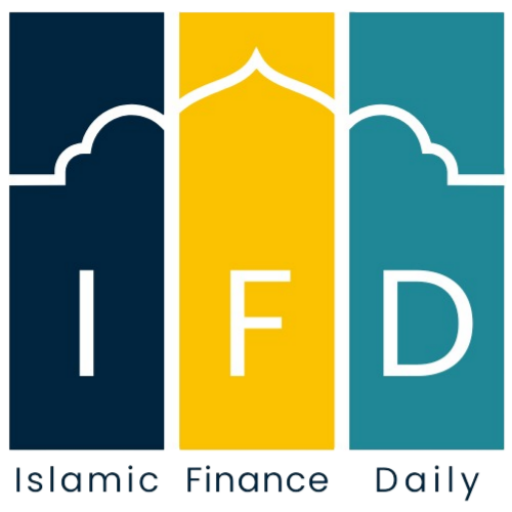Islamic banking has emerged as a significant component of the global financial system, providing an alternative to conventional banking by adhering to Shariah principles. These principles ensure that financial transactions align with ethical and moral guidelines, prohibiting practices such as interest (riba), excessive uncertainty (gharar), and speculative activities. In this comprehensive article, we explore the foundational principles of Islamic banking, its growth globally, and its vital role in reshaping modern financial systems.
Table of Contents
ToggleThe Foundations of Islamic Banking
Ethical Principles in Islamic Finance
Islamic banking is built on ethical foundations, emphasizing fairness, risk-sharing, and the promotion of economic justice. The core principles include:
- Prohibition of Interest (Riba): Charging or paying interest is strictly prohibited as it exploits individuals and creates inequality.
- Risk-Sharing: Financial transactions must involve shared risks and rewards, fostering partnerships rather than lender-borrower relationships.
- Asset-Backed Financing: Money must be linked to tangible assets, promoting real economic activities rather than speculative practices.
- Prohibition of Gharar: Contracts must be clear and free from excessive uncertainty or ambiguity.
- These principles aim to create a financial ecosystem that supports ethical investment and societal well-being.
How Islamic Banks Operate Differently
Islamic banks employ unique mechanisms to comply with Shariah principles, distinguishing themselves from conventional banks. Key operational models include:
Murabaha (Cost-Plus Financing)
Murabaha is a widely used mode of financing where the bank purchases a commodity or asset and sells it to the client at a marked-up price. The profit margin is disclosed upfront, ensuring transparency and mutual agreement.
Ijarah (Leasing)
In Ijarah, the bank leases an asset to the client for a specified period and cost. Ownership remains with the bank, transferring to the client only if specified conditions are met.
Musharakah (Partnership)
Musharakah involves a partnership where both the bank and the client contribute capital to a venture and share profits or losses proportionately. This model fosters cooperation and risk-sharing.
Sukuk (Islamic Bonds)
Sukuk represents ownership in tangible assets or a pool of assets. Unlike conventional bonds, sukuk ensures that returns are derived from asset performance rather than interest payments.
The Global Growth of Islamic Banking
Rapid Expansion
Islamic banking has witnessed remarkable growth globally. According to the Islamic Financial Services Board (IFSB), the Islamic finance industry surpassed $3 trillion in assets in 2022, driven by increasing demand from Muslim and non-Muslim markets.
Leading Markets
- Middle East: Countries like Saudi Arabia, UAE, and Bahrain are at the forefront, with Islamic banks constituting a significant portion of their banking systems.
- Southeast Asia: Malaysia is a global leader in Islamic finance, offering a robust regulatory framework and a thriving sukuk market.
- South Asia: Pakistan and Bangladesh have witnessed significant advancements in Islamic banking, supported by government initiatives.
- Africa: Countries such as Nigeria, Kenya, and South Africa are exploring Islamic banking to enhance financial inclusion.
- Western Markets: Non-Muslim-majority countries like the UK and Germany have embraced Islamic finance, offering Shariah-compliant products to cater to diverse communities.
Contributing Factors to Growth
- Increased Awareness: Greater understanding of Shariah-compliant finance has boosted demand.
- Government Support: Many countries have introduced supportive regulations to promote Islamic banking.
- Economic Stability: Islamic banking’s emphasis on asset-backed financing and risk-sharing enhances economic resilience.
The Role of Islamic Banking in Modern Financial Systems
Promoting Ethical Finance
Islamic banking addresses the ethical concerns associated with conventional banking, such as exploitative practices and speculative investments. By linking finance to real economic activities, it ensures that wealth creation benefits society at large.
Financial Inclusion
Islamic banking has played a crucial role in enhancing financial inclusion, particularly in regions where conventional banking is inaccessible or culturally incompatible. Shariah-compliant microfinance initiatives have empowered underserved communities, fostering economic development.
Stability in Financial Systems
The prohibition of speculative practices and excessive leverage in Islamic finance reduces the likelihood of financial crises. By aligning financial activities with real assets, Islamic banks contribute to a more stable and sustainable financial ecosystem.
Facilitating Cross-Border Trade
Islamic banks play a pivotal role in facilitating cross-border trade among Muslim-majority countries and beyond. Their expertise in Shariah-compliant trade finance products fosters economic integration and global connectivity.
Environmental, Social, and Governance (ESG) Alignment
The ethical principles of Islamic finance align with the global push toward ESG objectives. Many Islamic financial institutions invest in socially responsible and environmentally sustainable projects, supporting global development goals.
Challenges and the Way Forward
Challenges
Despite its growth, Islamic banking faces challenges, including:
- Regulatory Harmonization: Diverse interpretations of Shariah principles across jurisdictions create inconsistencies.
- Awareness and Education: Limited understanding of Islamic finance among stakeholders hampers growth.
- Product Innovation: The need for innovative products to cater to evolving market demands remains critical.
The Path Ahead
To address these challenges, stakeholders must:
- Develop unified regulatory frameworks.
- Enhance education and awareness programs.
- Invest in research and innovation to create competitive products.
Conclusion
Islamic banking has become a cornerstone of modern financial systems, offering a sustainable and ethical alternative to conventional banking. By emphasizing risk-sharing, asset-backed financing, and societal well-being, it fosters economic justice and resilience. As Islamic banking continues to grow and innovate, it holds immense potential to reshape global finance and contribute to a more equitable and inclusive economic future.



